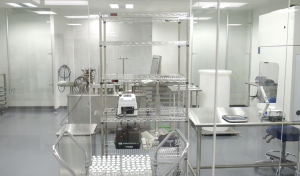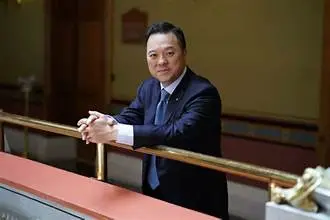BY DIRK PERREFORT
Hearst Connecticut Media
Two pharmaceutical companies in Danbury ”“ one big and one small ”“ are in a race to get federal approval for drugs that can reverse the effects of blood thinning agents.
Boehringer Ingelheim, an international company with billions of dollars at its disposal, and local startup Perosphere are in trials with drugs that can reverse the effects of certain anticoagulants, also known as blood thinners. No such reversal drug exists on the market today.
Anticoagulants often are used for people with heart disease or a high risk of stroke. The drugs need to be reversed in cases of severe bleeding or in cases when emergency surgery needs to be performed, such as after a car accident.

Boehringer Ingelheim released the results of a phase one trial this week of idarucizumab, a treatment in development to reverse the company’s anticoagulant, Pradaxa.
The company received a breakthrough therapy designation from the U.S. Food and Drug Administration for idarucizumab in June, less than two months after it reached a $650 million settlement over claims that it failed to warn consumers using Pradaxa about potential fatal bleeding episodes.
Drugs under development like idarucizumab and Per977, which is being developed by Perosphere, can, studies show, reverse the effects of blood thinning agents almost immediately.
“We are very happy that the phase one studies have shown what we expected ”“ an immediate reversal,” said Joanne van Ryn, a director with Boehringer’s Department of CardioMetabolic Disease Research.
She said the company hopes to submit its drug to the FDA for approval in the first half of next year.
Sol Steiner, the founder and CEO of Perosphere, said the company is in the middle of phase two trials and hopes to submit its drug application to the FDA by late next year.
And while both drugs are similar in that they are reversal agents, Steiner said he believes Per977 has attributes that could make it more attractive to the medical community.
Perosphere unveiled a $5 million manufacturing facility in Danbury in October it hopes to use for the new drug and others the company has in development.
While idarucizumab is being studied to reverse the anticoagulant effects of Pradaxa, Steiner said studies show Per977 can reverse all oral anticoagulants on the market. It also reverses the anticoagulant with a much smaller dosage than idarucizumab, he said.
“These drugs are very expensive to produce,” he said. “Requiring a higher dosage could increase the costs associated with idarucizumab.”
He said because Per977 works on most anticoagulants, doctors in an emergency situation who don’t know what a patient is using might decide to use his drug instead.
“It has a much larger market and you have (to) use a lot less of it,” Steiner said. “In the long run, from a financial point of view, we believe that our drug is a better bet.”
Hearst Connecticut Media includes four daily newspapers: Connecticut Post, Greenwich Time, The Advocate (Stamford) and The News Times (Danbury). See newstimes.com for more from this reporter.



















